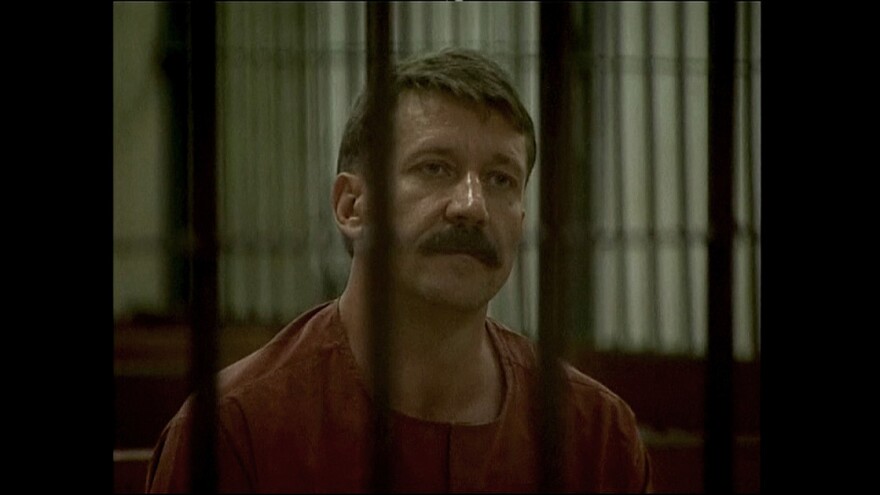This story is part of True/False Conversations, a series of in-depth interviews with the filmmakers of this year’s True/False Fest. Find the rest of them here or download the podcast on iTunes.
For more than a decade, Russian entrepreneur Viktor Bout was widely thought of as the brilliant, elusive figure at the head of a global arms trade. By the time he was brought down by an elaborate sting operation in 2008, Bout’s reputation in the media was that of a super villain. But in their film "The Notorious Mr. Bout," Maxim Pozdorovkin and Tony Gerber examine Bout’s life in the arms trade through a slightly different lens – his own. Before he became known as the “Merchant of Death,” Bout was to some simply a businessman, a travel enthusiast, and an amateur filmmaker.
I spoke with the film’s directors about using this found footage to paint a more nuanced picture of one of the world’ most notorious criminals.
You guys had some really great access. How did you get Alla, Viktor Bout’s wife, to get on board? And all of those family members and friends who were in the documentary, how did you get them to agree to this?
Tony Gerber: I don’t think anyone in Viktor’s family or his business or his associates would have spoken with us without first checking with Viktor. So we sorta had to pass the Viktor test. Both Max and I went into to see Viktor a number of times when he was in prison in New York and I think he was effectively sussing us up, trying to ascertain what kind of film it was we were interested in making. And to then speak to his wife, his brother, his project manager, his bodyguard - for all these folks to agree to interviews with us, they no doubt checked with Viktor first.
How did you even know that there was this treasure trove of home movies that you could have access to? Before you could approach the family, did you know that was available?
Maxim Pozdorovkin: We both met Alla at the trials. I had written a small piece of journalism about her and her daughter and during that it came out that Viktor was this avid home move-maker.
TG: But the incredible thing is that this is a guy who is reputed to be so secretive and so mysterious - this kind of real life Keyser Soze character who lives in the shadows and there’s only one known photograph of this guy. So the notion that there would be 200 hours of home movies over the course of two decades is completely counterintuitive.
Most of that film wasn’t shot by you guys and there must have been so much of it. How did you guys go through it all and decide what was good enough to be in the documentary?
MP: Well a lot of times that’s how you make a documentary anyway. You film a lot of things and you have some time and you look at the materials and the story kinda comes out. And here it was something very similar.
TG: But that being said, how do you sort thought 200 hours of home movies that don’t necessarily have any plot? That don’t necessarily, writ large, tell the story of this historical character? The home movies are sort of the corollary to the newspaper headlines.
Matt Potter, a journalist, says it’s very difficult to talk about Viktor Bout and not be seduced into one of two narratives: either he’s the “Merchant of Death” or he’s a stooge and a victim. And I could tell that you were very carefully trying to ride the line between those two narratives, to create a third narrative that was much greyer. What was your thought process?
MP: I think that that’s exactly right. I think it’s about letting those two narratives bump heads and the result hopefully is you actually see what this world is like.
Finally who should see this film and what do you want the audience to take away from it?
TG: Everyone should see it. For us another thing that’s important is it provides a window on the world of the arms industry but a very human window. So it’s not “eat your vegetables” viewing. It’s a very human, engaging and at times quite funny portrait.








